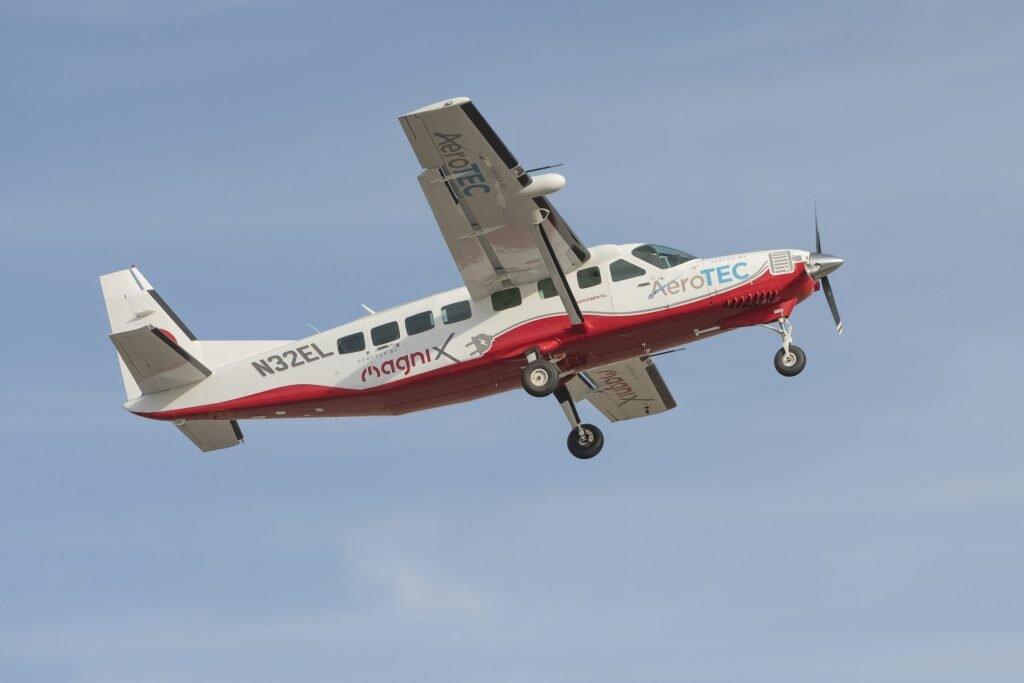In historical development, the world's largest all-electric plane completed its first test flight. The step could be a watershed moment for the aviation sector that will lead to an era of low-cost, pollution-free air travel. Magnix, a Seattle headquartered electric motor manufacturer partnered with a local airline Harbour Air to modify a Cessna Grand Caravan 208 with a 750-horsepower zero-emissions motor. The aircraft's' first test flight was conducted over Moses Lake, Washington on Thursday. It is to be noted that 37-foot Caravan is one of the most popular medium-ranged commuter airlines in the world which can carry up to nine passengers.
As per a report in an online portal, TechXplore, a 30-minute flight powered with electric engine hardly made any noise which is in complete contrast with fuel-powered engine test flight that made a lot of noise. Calling it a historic moment, Roei Ganzarski, CEO, Magnix said that this is just an inaugural step towards a long process of approvals and improvements which will allow the new generation of green engines to power larger commercial airliners.

Flying a greener path
He also said, "These electric commercial aircraft will enable the offering of flying services of people and packages in a way previously not possible. It's a niche market. But we can start now, get working on it and push the envelope to progress the entire industry."
The company is expected to get certification from the FAA by 2021. Interestingly, the plane will be allowed to carry passengers to be boarded only after getting regulators' approval. However, the use of low-cost, pollution-free engines has a few drawbacks attached to it. The maximum range of a single flight gets reduced from 1,200 miles to about 100 miles.
Ganzarski also added, "The challenge is that batteries are not as powerful potent as fuel. We chose lithium-ion because, at this stage, it's the most proven technology or proven chemistry to provide the energy and safety that we need to fly the aircraft."
Notably, along with Magnix, other aviation companies like Lilium, Embraer, Ampaire and Pipistrel are also foraying into all-electric aircraft to reduce emission.

















